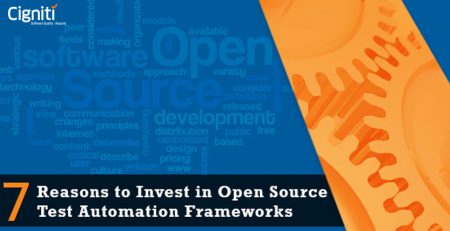6 Best Practices of Automation Testing for Oracle Fusion Financials
Oracle Fusion Financials is a comprehensive suite of cloud-based applications that offers enterprises advanced financial management solutions. The suite contains several modules, including general ledger, accounts payable, accounts receivable, fixed assets, cash management, expenses, revenue management, and more.
One of the primary benefits of Oracle Fusion Financials is that it provides regular quarterly updates with new features and enhancements that improve functionality and performance. However, these updates create challenges for testing teams to ensure that the updates do not introduce defects or break any existing functionality.
Manual testing of Oracle Fusion Financials quarterly updates is impractical and not recommended as it is time-consuming, prone to errors, and does not ensure optimal test coverage. It also demands a lot of resources and coordination among testers, developers, business users, and stakeholders. Therefore, automation testing is best for handling Oracle Fusion Financials’ quarterly updates.
Automation testing can save time and money by reducing manual efforts and increasing test efficiency and accuracy. It can also ensure consistent test quality and reliability across various environments and scenarios.
Here are some best practices for utilizing automation testing for Oracle Fusion Financials quarterly updates.
- Establish a testing plan: Before each quarterly update cycle, it is crucial to establish a comprehensive automation testing strategy for your business objectives and priorities. It should involve identifying which modules and features will be impacted by the updates and which test cases need to execute. Allocate sufficient time and resources for activities such as test design, development, execution, analysis, and reporting.
- Selecting the right automation tool: It is essential to choose an automation testing tool that supports Oracle Fusion Financials cloud applications and comes equipped with features such as data-driven testing, keyword-driven testing, object repository, reusable components, etc. When choosing the right automation testing tool, it’s vital to consider factors like usability, scalability, integration, and maintenance requirements.
- Follow a structured approach: Follow a structured approach, such as Test-Driven Development (TDD) or Behavior-Driven Development (BDD) which help define clear test objectives, specifications, scenarios, and expected outcomes before writing any code. By aligning automation tests with business goals, the structured approach leads to better automation testing results.
- Test design: Use best practices for test design, such as modularization, parameterization, reusability, and maintainability. These practices assist in creating robust, flexible, readable, and easy-to-update automation tests that can handle dynamic data, complex workflows, and multiple environments.
- Test execution: Parallel execution, scheduling, and reporting help run automation tests faster, more frequently, and more effectively. Additionally, they aid in monitoring test results, tracking progress, and identifying any issues or defects.
- Test maintenance: Version control, documentation, and refactoring help manage automation test assets and keep them up-to-date with the changes in the application. They also enhance automation test quality and performance.
By implementing these best practices, automation testing can provide various benefits for Oracle Fusion Financials’ quarterly updates:
Time and cost savings: Automation testing can minimize the time and costs involved by reducing manual efforts, increasing test efficiency, and improving accuracy. This approach also enables testers to concentrate on higher value-added tasks such as exploratory and usability testing.
Quality and reliability assurance: By detecting defects or issues early in the update cycle, automation testing can help ensure the quality and reliability of your Oracle Fusion Financials cloud applications and prevent any adverse impact on your business operations and users resulting from faulty updates.
Enhanced functionality and performance: Automation testing can verify that the updates do not harm any existing functionality or performance and can validate new features and enhancements provided by the updates, resulting in improved functionality and performance for your Oracle Fusion Financials cloud applications.
Conclusion
Automation testing is essential for handling Oracle Fusion Financials’ quarterly updates. By following the best practices outlined above, businesses can ensure that their applications are up-to-date, reliable, and functioning optimally. Yet, some lack the expertise or resources to conduct efficient automation testing. That’s where Cigniti can help you.
With experience and skilled employees, we can provide businesses with the right tools and strategies to execute automation testing efficiently and effectively. By partnering with us, you can save time and money, improve your application’s functionality and performance, and ensure consistent quality and reliability.
Need help? Contact our automation testing experts to learn about the best practices and benefits of using automation testing for Oracle Fusion Financials.





Leave a Reply